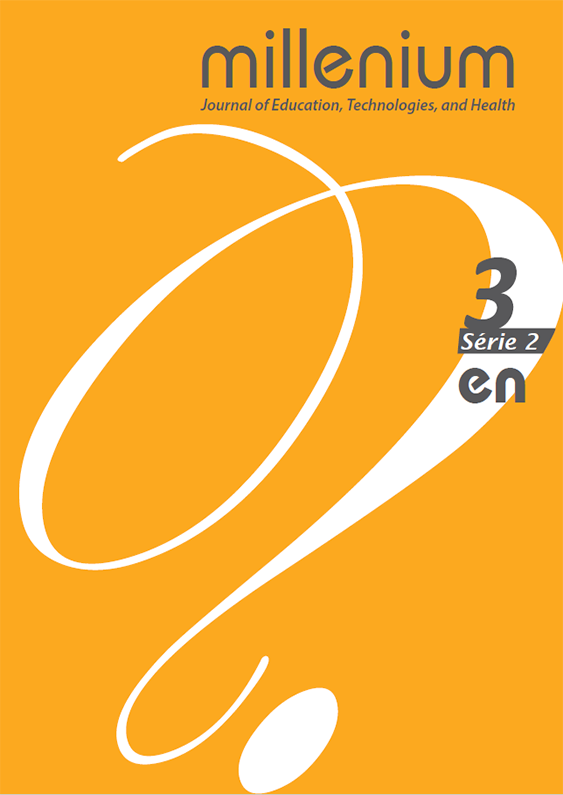A look at the Alzheimer support center Viseu
DOI:
https://doi.org/10.29352/mill0203.09.00123Keywords:
Alzheimer, Dementia, Caregivers, InterventionAbstract
Introduction: Every 3 seconds, a new case of dementia is diagnosed around the world, amounting around 9.9 million of new cases in 2015. (Prince, et al., 2015) Dementia is an acquired organic syndrome, usually chronic, characterized by the progressive loss of cognitive and functional capacities due to the gradual degeneration of the several cerebral zones. It compromises the personal, family, professional and social life of the individual, severely affecting their autonomy and independence. (Nunes, 2014)
Objective: To disseminate the work developed by the Centro de Apoio ao Alzheimer Viseu (CAAV); To characterize the profile and needs of caregivers who seek the services of CAAV.
Methods: An exploratory study developed based on data from a sample of 166 caregivers of people with dementia who recruited the CAAV between 2014 and 2017. They are mostly informal caregivers (137), who at some point provided full-time support to the patient without any outside help, with female demand prevailing with 128 requests for support against 38 male caregivers.
Results: The most sought after services in CAAV are: technical, social / medical / legal support, as well as psychological support and support group. Most of the people who request these services are women, especially the patients' daughters (49%), followed by the spouses (27%), with Alzheimer dementia being the most frequently referred pathology.
Conclusions: The results show that the CAAV assumes an entity with individual and social impact, so based on the Person Centered Care model, CAAV intends in the short and medium term to create new services to support the needs and demands of people with dementia and their caregivers.
Downloads
References
Franco-Martín,M.A., & Orihuela-Villameriel, T. (2006). A reabilitação das funções cognitivas superiores na demência. In H. Firmino (Ed.). Psicogeriatria. (pp.471-487). Coimbra: Psiquiatria Clínica.
Fernández-Lansac, V. y Crespo L., M. Resiliencia, Personalidad Resistente y Crecimiento en Cuidadores de Personas con Demencia en el Entorno Familiar: Una Revisión. Clínica y Salud, 2011, vol.22, no.1, p.21-40.
Figueiredo, D. (2007). Cuidados familiares ao idoso dependente. Lisboa: Climepsi Editores.
Pontes, C. (2016). As várias formas de demência. In Revista Alzheimer Portugal, 62, 4-5.
Prince, M. & cols. (2015). World alzheimer report 2015: The global impactofdementia - ananalysisofprevalence, incidence, costandtrends. London: Alzheimer’sDiseaseInternational. Disponível em: https://www.alz.co.uk/research/WorldAlzheimerReport2015.pdf
Sequeira, C. (2007). Cuidar de idosos dependentes. Coimbra: Quarteto.
Taborda, A., Melo, M. (2014). Demência e doença de Alzheimer. In A. M. Fonseca (Coord.). Demência na Terceira Idade: Contributos Teóricos, Competências a Mobilizar e Estratégias de Intervenção. (pp 25-42). V.N.Famalicão: ADRAVE.
World Health Organization (2012). Dementia: A public health priority. Geneva: World Health Organization.
Downloads
Published
How to Cite
Issue
Section
License
Authors who submit proposals for this journal agree to the following terms:
a) Articles are published under the Licença Creative Commons (CC BY 4.0), in full open-access, without any cost or fees of any kind to the author or the reader;
b) The authors retain copyright and grant the journal right of first publication, allowing the free sharing of work, provided it is correctly attributed the authorship and initial publication in this journal;
c) The authors are permitted to take on additional contracts separately for non-exclusive distribution of the version of the work published in this journal (eg, post it to an institutional repository or as a book), with an acknowledgment of its initial publication in this journal;
d) Authors are permitted and encouraged to publish and distribute their work online (eg, in institutional repositories or on their website) as it can lead to productive exchanges, as well as increase the impact and citation of published work
Documents required for submission
Article template (Editable format)





